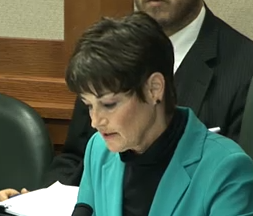By Gloria Petit/@GloriPetit
Benjamin Rubio Robledo received a Bachelor of Arts in psychology from Texas A&M University-San Antonio in 2013. Then, despite many challenges, he went on to pursue a master’s degree in counseling and guidance with an emphasis on mental health. But, if the Texas Dream Act is repealed this legislative session, Rubio says he will have to put his educational dreams on hold.
The possibility worries him.
“This is one of the things that has been killing me lately,” Rubio said. “If they do away with in-state tuition, then this will kill my progress in my master’s program.”
Rubio is one of 38 students enrolled at A&M-San Antonio under SB 1528, according to data provided by the office of institutional research. Passed in 2005, SB 1528 is an amendment to the Texas Dream Act which allows qualified students access to in-state tuition rates at Texas public institutions of higher education and state financial aid.
State-wide, 2 percent of students enrolled at an institution of higher education are either undocumented or lack permanent residency and receive in-state tuition, according to the Texas Tribune.
Undocumented students could face an uncertain future if legislators repeal the Texas Dream Act.
On April 8, a senate committee passed a bill to repeal in-state college tuition for undocumented students. If passed, SB 1819, authored by Sen. Donna Campbell, R-New Braunfels, would repeal a 2001 provision of the Texas Dream Act signed by former Gov. Rick Perry.
Proponents of the bill say they favor the legislation because tuition rates would be adjusted so that undocumented students are purportedly treated as students living in 49 other states.
To receive in-state tuition, qualifications under the provision include that students be neither U.S. citizens nor permanent residents, must have lived in Texas for at least three years, and plan to apply for legal status as soon as they are able under federal law.
For Rubio, the Texas Dream Act is legislation that creates revenue for the school “something so vital to the state.”
“I think it’s pure discrimination,” he said. “It kills people’s dreams to go to school. If you don’t see me there next semester, then you know why.”

Reached April 14, Jon Oliver, Campbell’s senior policy and communications adviser, emailed a following statement outlining the senator’s position.
“By the year 2020, Texans will be subsidizing $100 million worth of grants and tuition benefits for undocumented students in Texas due to a failed immigration system. This will eat into the precious resources available to take care of Texas citizens.
Until we secure the border and start enforcing immigration laws on the books, this is bad policy that is fiscally unsustainable. Having kept our promise to the school children who were here illegally through no fault of their own in 2001, it’s time to rethink the costs of continuing this policy in perpetuity and renew our focus on encouraging a safe and legal immigration system that rewards following the law.”
Rubio is unsure of what will happen in the hands of Texas lawmakers. Not long ago, he was the beneficiary of legislative action when he received work authorization through an executive order by President Obama. This executive order was generalized as the Deferred Action for Childhood Arrivals (DACA) which allowed for thousands of undocumented students to obtain work permits and temporary protection from deportation nationwide.
For now, he continues to attend school and holds a position as a case manager for the St. Peter- St. Joseph Children’s Home in San Antonio. He says that his workplace has dealt with many children who immigrated from Central America.
For the 38 students possibly impacted by changing legislation, it’s a waiting game.
Sylvia Medel, who oversees student rights and international affairs, said her office meets with students one-on-one to ensure they are up to date on any changing legislation.
“All we do is put information out there for the students,” she said. “We really can’t give any legal advice, because that is still a sticky situation.”
The university once had an active Students United for the DREAM Act (SUDA) group. Many students from the organization have graduated and started working. Now that Rubio is attending graduate school, he hopes to get the group started back up again.
“We are people that have the desire to be in school,” Rubio said.





